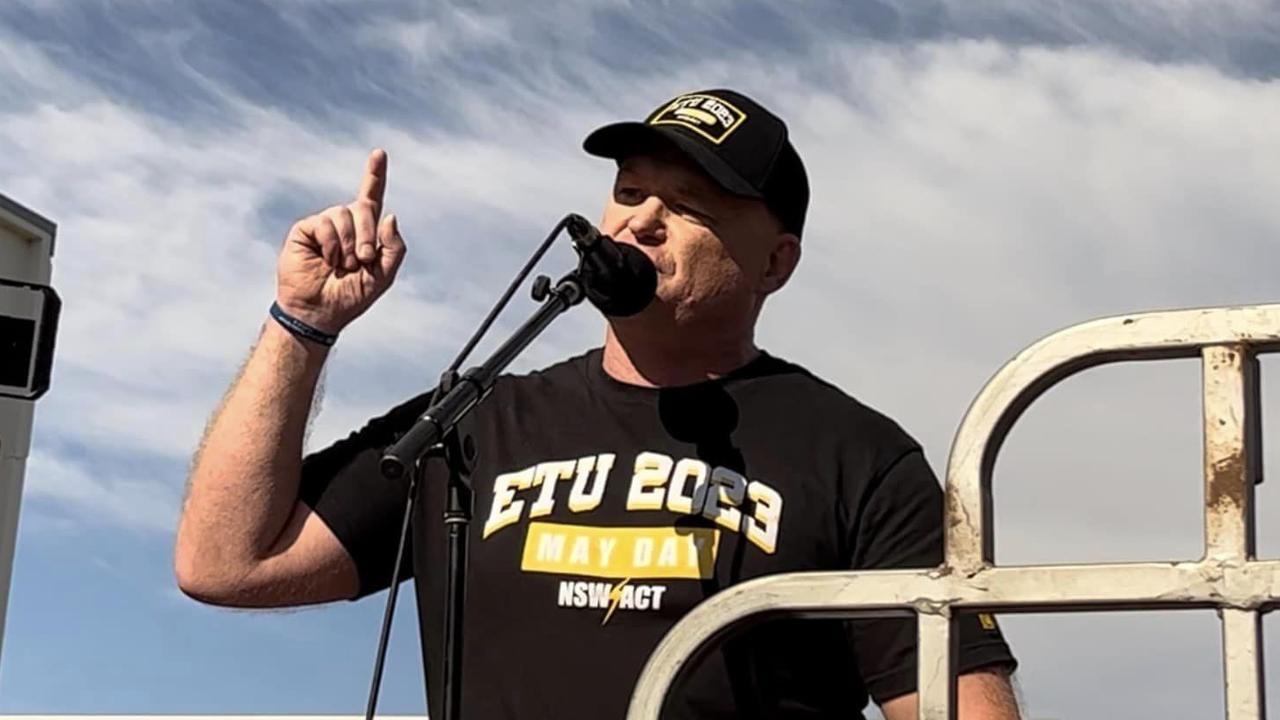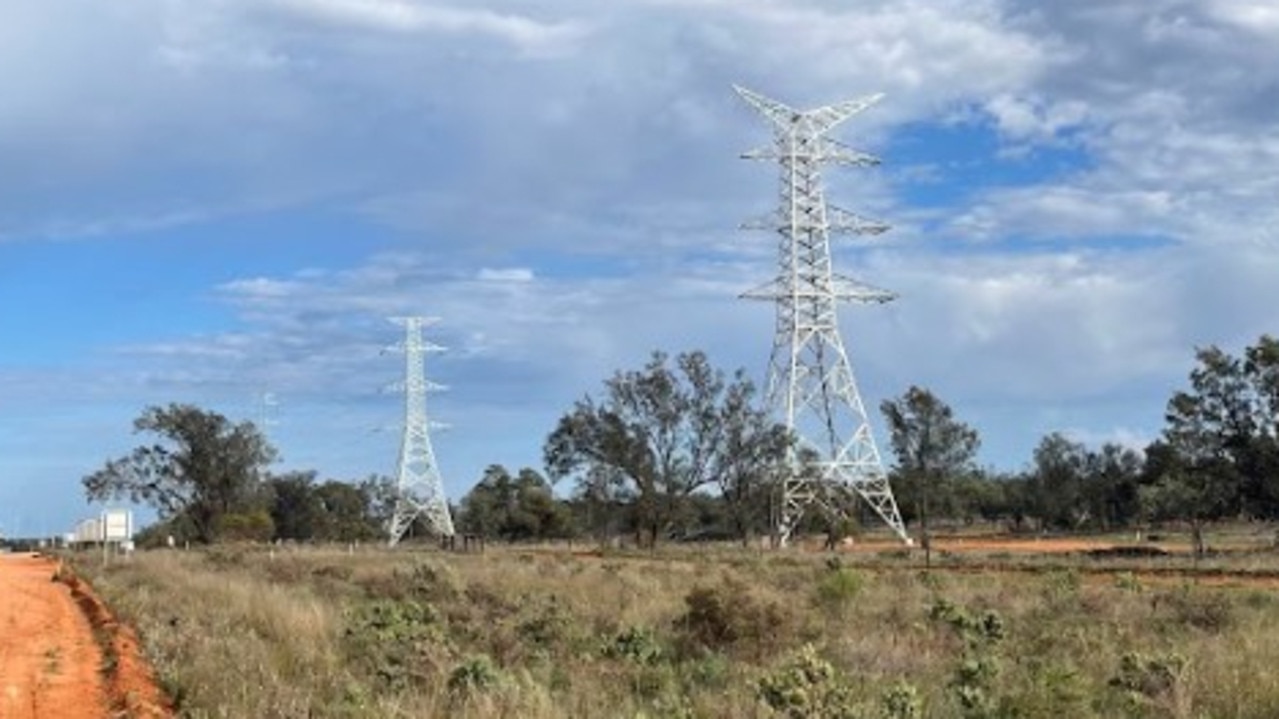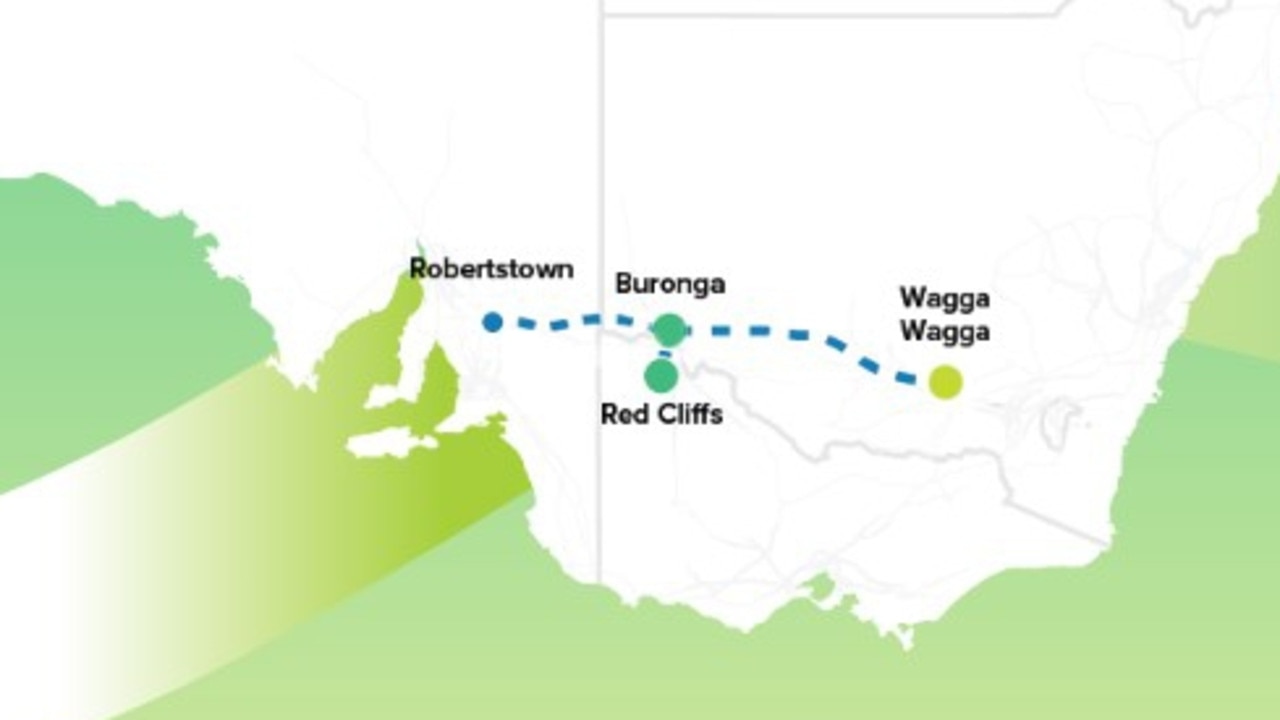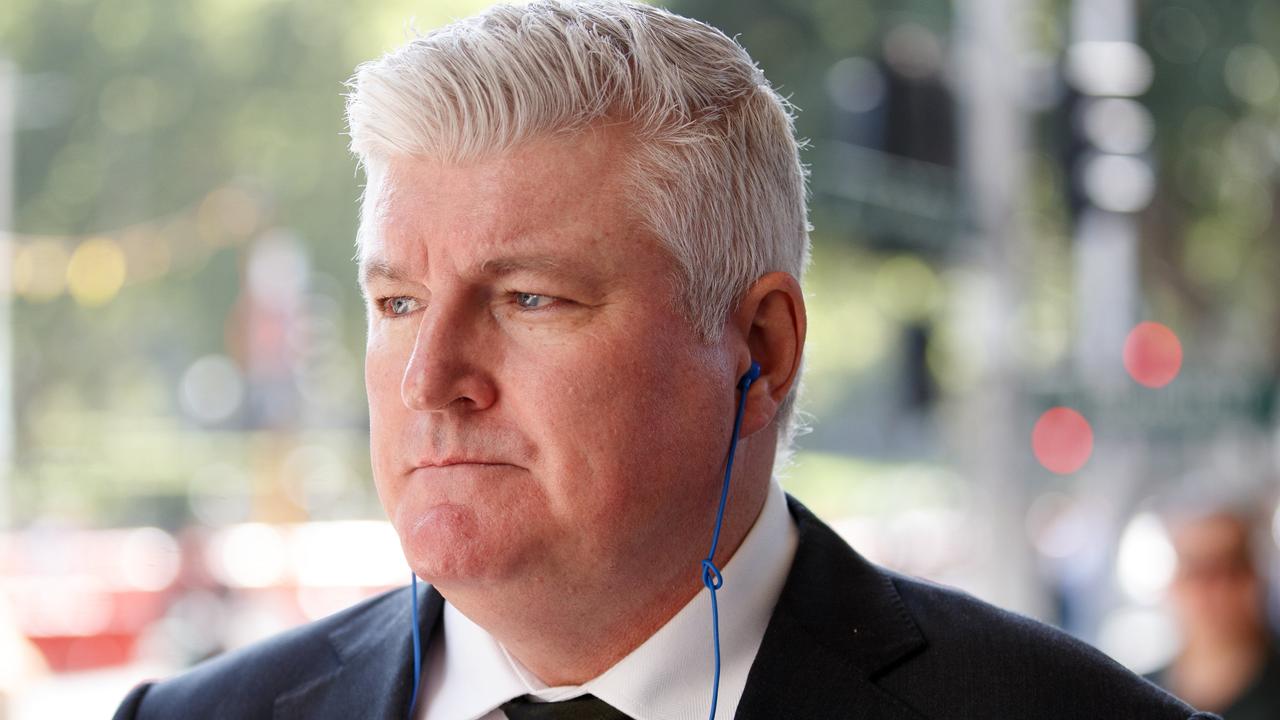Electrical Trades Union, Transgrid pay battle enters its sixth month
Hundreds of workers will strike for 24 hours in a long-running pay dispute with an electricity giant after the company allegedly rejected a new offer from the union.

Breaking News
Don't miss out on the headlines from Breaking News. Followed categories will be added to My News.
Some 400 union workers will strike for 24 hours on Friday at electricity giant Transgrid after the company allegedly rejected a “compromise” offer from the Electrical Trades Union last week.
The long running pay dispute between the union and Transgrid, which operates transmission lines, high voltage underground cables, substations, switching stations and digital infrastructure to transfer electricity to more than three million households and businesses across NSW and the ACT, has entered its sixth month of negotiations.
The union originally pushed for a yearly 8 per cent bump in pay over three years, with Transgrid offering a 13 per cent wages and superannuation offer.
But last week, the union said it tabled a “compromise” offer for a 6.5 per cent increase each year for three years plus a 0.5 per cent superannuation increase in years two and three.

Transgrid has not accepted the offer, but a spokeswoman told NCA NewsWire the company had also moved from its original position.
“Transgrid’s competitive wage and superannuation offer is 14 per cent over three years, with a 5 per cent wage increase in the first year, a 4 per cent wage plus 0.5 per cent superannuation increase in the second year and a further 4 per cent wage plus a further 0.5 per cent superannuation increase in the third year as part of an overall package, compared to the December Transgrid 13 per cent wages and superannuation offer,” she said.
“In terms of broader economic considerations, our wages offer exceeds the rate of expected inflation over the life of the proposed enterprise agreement.
“Our wages offer and other benefits proposed for the enterprise agreement takes account of several factors including the competitiveness of our current employment conditions and how we compare to others in our industry.”
ETU NSW and ACT Secretary Allen Hicks said the company was behaving in a “pig-headed” manner and claimed its alleged recalcitrance put Australia’s net zero ambitions at risk.

“Our electrical workers are invaluable, they often work nights and weekends away from their families to get the community’s power back on quickly, and they are the key to unlocking billions of dollars worth of renewable energy generation,” he said on Friday.
“Yet in the midst of a national energy transition and skills shortage, Transgrid’s stubborn refusal to lift wages threatens to further gut the essential workforce and undermine the transition to net zero.
“Transgrid has the funds but doesn’t have the will to pay electrical workers what they are worth.”
In January, the union alleges 83 per cent of eligible Transgrid employees rejected the company’s proposed enterprise bargaining agreement.
Some workers will also rally outside the company’s depot in western Sydney.

The union claims its industrial action will not endanger the general public or workers.
“Resources will be available to respond to life-threatening emergencies,” the union said.
The rolling strikes have hit the company’s signature EnergyConnect project, a $2.3bn transmission line build that is expected to feed more green energy into the grid.
The interconnector will connect power grids in South Australia and NSW and the Australian Energy Market Operator has deemed it a “required project” to fortify Australia’s eastern energy market.
The rolling strike action at Transgrid comes as the federal government moves to underwrite 32GW of new renewable energy generation to hit an ambitious 82 per cent reduction in carbon emissions by 2030.
Originally published as Electrical Trades Union, Transgrid pay battle enters its sixth month






